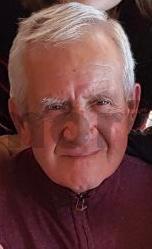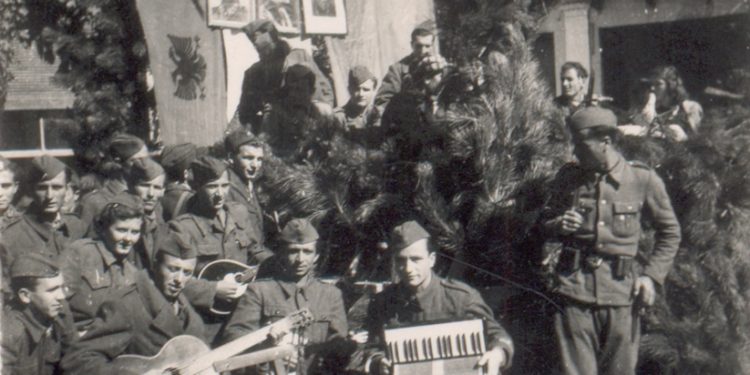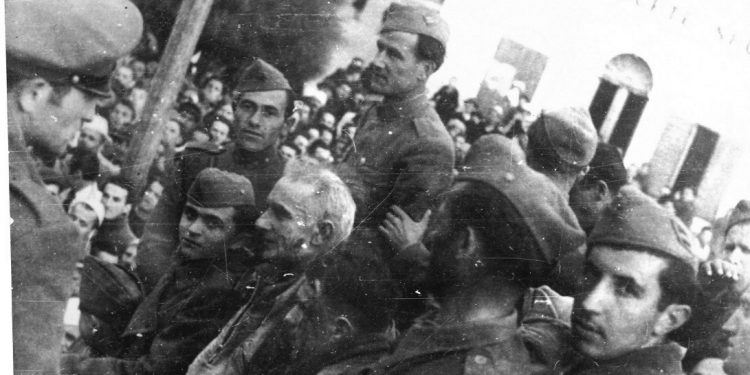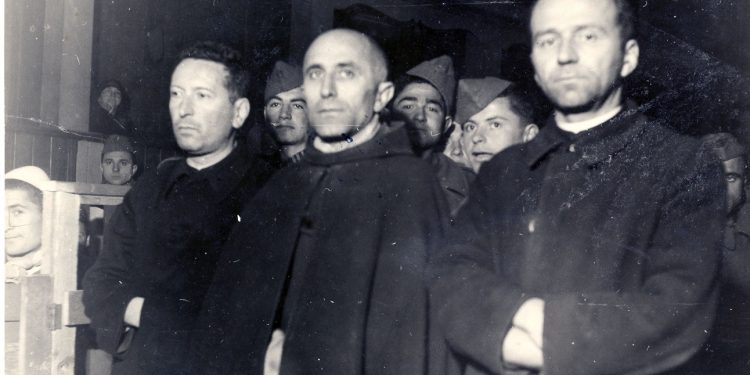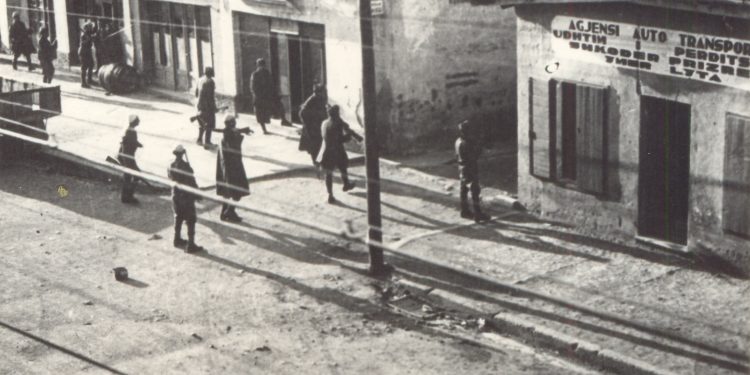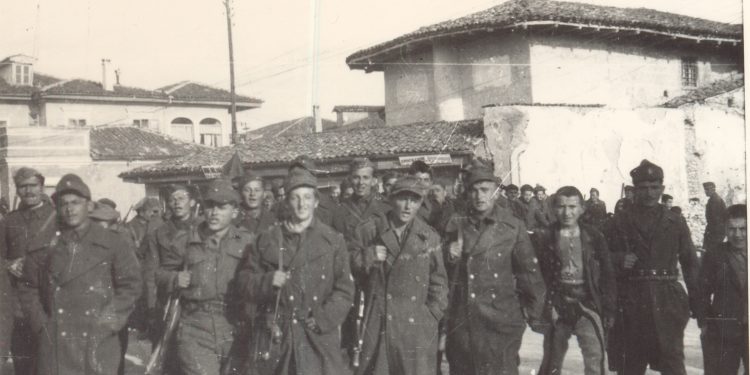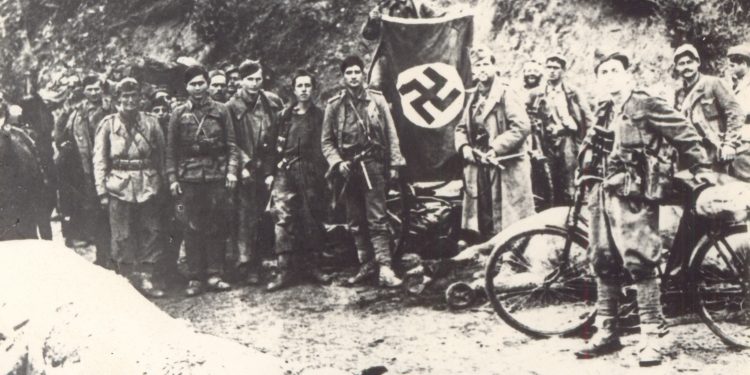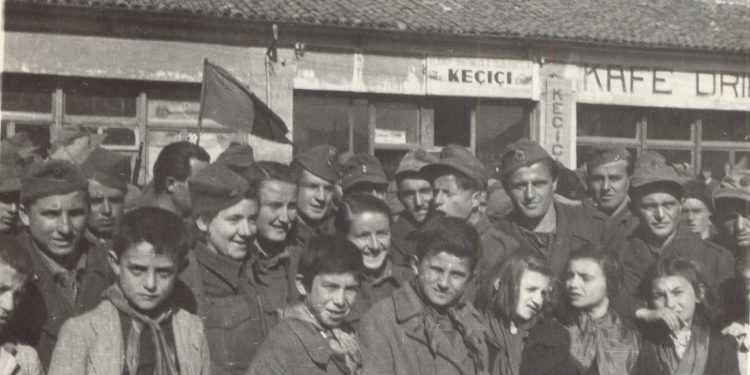Dr. Agim Rexhep Neziri
Reflection on two events experienced in our house in the city of Shkodra, in November 1944 and three or four years later…
The events I am describing below in this article I personally experienced and the first happened 75 years ago, exactly on the first day of November 1944 when in the city of Shkodra were still the German Nazi occupying forces and the sons of the National Liberation still they had not come down from the mountains victorious, as was then said, and the next event took place three or four years later.
Although in November 1944 I was 6 years old, I remember very well and remember the rude atmosphere in our city of Shkodra with gunshots and artillery, but also the echo of hope “for freedom and salvation, who felt that the boys of the National Liberation War were returning victorious”, among whom we also had people close to us.
One day at the beginning of November 1944, a group of German soldiers stormed our house and demanded in harsh tone from my father, Rexhep Neziri, a professor at the Shkodra gymnasium, that we vacate the first floor of our two-story house. sheltered about ten soldiers, including a lieutenant. Something like this had happened in almost all the houses in the Russian quarter, which extended to the northern outskirts of the city, on the road to Koplik-Hani i Hotit-Podgorica.
We were forced to carry out the order. We vacated the first floor, mainly the large waiting room, equipped with heavy, new and modern furniture. Immediately, the soldiers were placed with portable beds in two rooms, and in the smallest lieutenant room.
The atmosphere was heavy. The roar of military vehicles grouped in Shkodra, heading north to Podgorica and beyond, could be heard day and night. The noise of English aircraft squadrons was often heard as well as the response of an anti-aircraft machine gun mounted on a truck in our backyard. We, frightened, ran under the break of the stairs leading to the second floor. As stated, these planes actually targeted Podgorica.
But we passed the real horror, when one of these days the German captain came for inspection, who, disgusted with harsh and threatening tones, accused our father with horrible screams and gestures, because he had removed the furniture from the big waiting room. . And when his father, in German, explained to him that the order had been given to “vacate the rooms”, he became so enraged that he pulled out his revolver and aimed it at his father. It was only the fate and intervention of the Czech lieutenant, an engineer who had studied in France, who shared with his father an interest in the French language and radio news from the anti-German front, which saved my father. The Czech lieutenant, apparently mobilized forcefully, behaved very normally and politely with our family. Surprisingly, even soldiers who alternated with others behaved very correctly.
A little unexpected from an invader ata, they and the children, were careful, where often, I, and other children in the house were given chocolates, compotes, special cookies, etc. In addition to this abundant supplementary supply, they were regularly supplied with warm food, mainly mashed potatoes and schnitzel from the field kitchen near our house, all of which were in retreat and defeat.
In addition, I was impressed by the order and exemplary purity they maintained. German soldiers removed any waste after consumption and buried metal cans in a corner of the yard, which, tens of years later, to verify my memory, I found 50 cm underground and disposed of.
After a night of real anxiety, the night of 27-28 November 1944, a night of extraordinary gunfire, machine guns and bombs, culminating in horrific explosions of bombs and ammunition caused by the Germans themselves blowing up several ammunition depots, between which was also a house of our cousins in the Russian Quarter, the next day was a snowy day, but also sunny and with the nationwide joy of freedom. Noisy demonstrations took place in Pijaca near the prefecture, where we as children went happily, playing in the streets. It was the time when the “Churchill-Stalin-Roosevelt” cries were heard, which were soon replaced by the “Enver-Tito-Stalin” cries.
The war was over, but large military forces from the south came to Shkodra to gather. The great joy, that “now we were free and we would eat with a golden spoon”, was interrupted from time to time by accidental explosions of the remnants of the remaining bombs, which the little children took as a game, but then we saw our bloody friends, when they were taken to the hospital.
But, a little later, in the early hours of the morning, we began to wake up from the gunfire in Zall e Kirit, where it was said that “enemies and traitors of the people” were being shot, including prominent priests and clergy. It happened that in some parts of the city, the children of our neighborhood went to see people addicted with their tongues out, such as Llesh Marashi, or Prekë Calin. The stories of these friends terrified us.
In addition to the joy that the schools were opened and we started teaching in the first grade, we also heard serious news such as the extraordinary and unaffordable taxes for many citizens of Shkodra, whose inability to pay, their house and property were seized and nationalized. These owners mostly ended up in the haure of other fellow citizens. Many close people of our family also had this luck.
While in our house it happened somewhat differently. I emphasize that our two-story house was new and built only a few months ago, with many sacrifices, after an accidental burning.
Initially, the family of a trader whose three-storey house in the center of Shkodra was seized was forcibly housed on the first floor. But, after a few months, they took him out of us, as unworthy to live in a new and good house like ours.
In the early summer of 1948, a team from the City Executive Committee and the Neighborhood Council came to our house with a strange proposal, addressing my mother: “You know that our Yugoslav brothers are helping us in the very work of large and important, the Shkodra-Podgorica railway, which has already started. “Two Yugoslav engineers will come and take refuge in your house, and you must release him as soon as possible.”
Such a thing fell on us like a bomb. I emphasize that at home we were three small children, I the eldest 10-year-old. The father, at that time, was working away, in Elbasan, where he worked as a teacher in the Elbasan Normal. Our refusal to leave the house and the request to stay, at least in a part of our house, with the argument that even the Germans did not evict us, but allowed us to live together on one floor of the house, and that the three floor rooms first were enough for the two engineers, fell on deaf ears. The team wondered how we did not realize that the engineers, who would be staying on the weekends, as the next time they were working in Bajza, needed calm and relaxation, with no people on foot.
Since we still “could not understand”, one of them “helped” us by saying confidentially: “You vacate the house voluntarily, because after all, the state knows how to nationalize you forever, and when it is over railroad, you will get your house again.
We “voluntarily” vacated the house, asking for the favor of being housed in a house as close as possible to ours, because we also had the kindergarten that served as an auxiliary economy, in circumstances where we lived on only a half-teacher salary.
Only the first request was met. They gave us two ground-floor rooms in the neighbors’ haur, and for the garden we were advised to give up, because the two engineers, Yugoslav brothers, might prefer to walk through the unobstructed garden.
This masquerade ended with a happy ending. While our family was working to clean and systematize the neighbors’ haur, where we would be sheltered, the news was heard that “I betray Tito”. It was, I believe, June 1948, when the fraternal relations with the Yugoslavs were completely broken. We immediately stopped working and moved into our home, where not without other vicissitudes of this kind, we still live today. These “vicissitudes” happened to almost most of the houses in Shkodra, which were filled with uninvited tenants, military and civilian from the south, for decades. The situation had reached such proportions that a humorist from Shkodra had asked: Is Toscaria or Italy bigger?! This is because at the time of the Italian occupation there were no such tenants, forcibly introduced to the property of the other./Memorie.al




